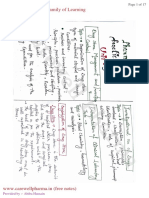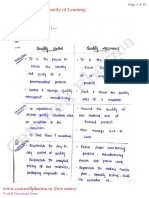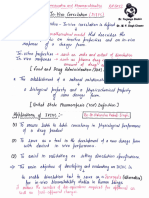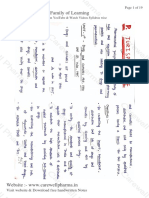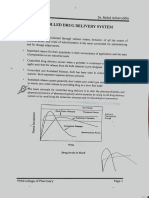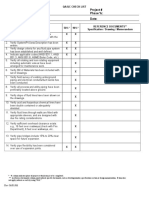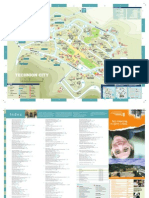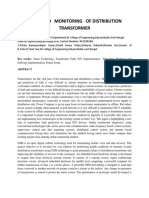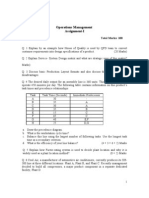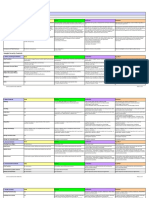IMPORTANCE AND SCOPE OF VALIDATION
Importance of Validation:
Validation is of utmost importance in various industries, particularly in regulated sectors such as
pharmaceuticals, medical devices, biotechnology, and food manufacturing. Here are some key
reasons why validation is crucial:
1. Regulatory Compliance: Regulatory authorities, such as the FDA (U.S. Food and Drug
Administration), require validation to ensure that products, processes, and systems meet
stringent quality standards. Validation demonstrates compliance with regulations and
guidelines, reducing the risk of regulatory non-compliance and potential legal
consequences.
2. Patient and Consumer Safety: In industries related to healthcare and life sciences,
validation plays a critical role in ensuring the safety and efficacy of products. It helps
identify and mitigate risks associated with processes and systems, reducing the potential
harm to patients and consumers.
3. Quality Assurance: Validation ensures that products, processes, and systems consistently
meet predefined quality standards. It helps to identify and prevent potential deviations,
errors, or defects that could impact product quality. By establishing control measures and
validation protocols, organizations can maintain and improve product quality.
4. Risk Management: Validation assists in identifying and managing risks associated with
processes, systems, and products. It involves analyzing potential hazards, assessing risks,
and implementing mitigation strategies to minimize or eliminate those risks. Validation
helps organizations make informed decisions to enhance product safety and reliability.
5. Process Optimization and Efficiency: Through validation, organizations gain a deep
understanding of their processes and systems. It allows for the identification of areas for
improvement, optimization of processes, and elimination of inefficiencies. Validation
helps organizations enhance productivity, reduce costs, and ensure consistent and reliable
operations.
6. Documentation and Audit Trail: Validation involves rigorous documentation, creating a
comprehensive record of the validation activities and results. This documentation
provides an audit trail, enabling traceability, accountability, and transparency throughout
the product lifecycle. It supports regulatory inspections, audits, and quality investigations.
Scope of Validation:
The scope of validation encompasses a wide range of areas within an organization:
1. Equipment Validation: This involves validating the performance, accuracy, and reliability
of equipment and instruments used in manufacturing, laboratory testing, and other
processes. It ensures that equipment is fit for its intended purpose and consistently
produces reliable results.
� 2. Process Validation: Process validation focuses on validating manufacturing processes to
ensure consistent and reproducible results. It involves assessing critical process
parameters, identifying process variability, and establishing control strategies to ensure
product quality.
3. Cleaning Validation: Cleaning validation is crucial in industries where equipment or
systems are cleaned between batches or uses to prevent cross-contamination. It ensures
that cleaning procedures effectively remove residues and contaminants, maintaining
product safety and quality.
4. Software Validation: In industries reliant on computer systems and software, validation of
software applications is critical. It involves verifying that software functions as intended,
meets user requirements, and produces accurate and reliable results.
5. Analytical Method Validation: Analytical method validation ensures that laboratory
methods used for product testing, such as assays and purity tests, are accurate, precise,
and reliable. It confirms that the methods produce valid results, supporting product
quality control and release.
6. Packaging Validation: Packaging validation ensures that packaging materials, processes,
and equipment meet quality and functional requirements. It ensures that packaging
provides adequate protection, maintains product integrity, and complies with regulations.
The scope of validation may vary depending on industry-specific requirements, regulations, and
organizational needs. It is essential for organizations to identify and address the areas requiring
validation to ensure compliance, product quality, and customer satisfaction.








